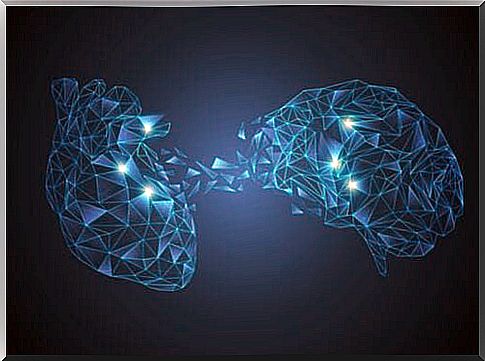Psychological Balance: How To Keep It?

Maintaining psychological balance means maintaining a certain stability in terms of mood, emotions and feelings. It also means reacting psychologically with a certain moderation to external stimuli, in a proportionate way and maintaining a certain self-control of impulses and instinctive life.
On the other hand, we define unbalanced a person who is too sensitive to external events and who reacts in an exaggerated way to them. An unbalanced person tends to have a fragile and psychologically unstable affectivity.
The person unable to maintain psychological balance tends to fall apart in the face of every event. It easily falls into despair, sadness or pessimism. Sometimes the lack of balance is due, paradoxically, to an excessive balance.
This excessive balance reflects a more or less serious psychic anomaly; it is the case of people who lack, or almost, feelings. They can be devoid of compassion, ethical conscience, shame, etc.
Each person has their own psychological balance
In some cases, the lack of psychological balance is due to a mental disorder. It will therefore be necessary to address it through a specific treatment. However, most of the time, it is a personality problem. In these cases, the question is how to achieve a balanced personality.
Each person is a world unto himself, with his own characteristics. It is impossible to define in detail a way of being, valid for everyone, and capable of conferring psychological balance. It is not necessary to change one’s way of being to obtain a more or less standardized personality. Doing so would rather be an attempt on one’s identity.
There are, however, a number of psychological factors that represent the fundamental ingredients of a balanced personality. Without it, a person is exposed to meltdown.

Self-knowledge and balanced personality
First of all, it is essential to know each other. This is possible through the analysis of one’s own attitudes and limitations. It is important to know your skills, what you are capable of doing, as well as what is difficult, if not impossible. to do because of one’s physical or intellectual limitations.
Self-knowledge requires introspective analysis. This means enhancing one’s way of being and one’s abilities, investigating within oneself. However, it also requires an extrospective analysis, that is to know ourselves through our actions.
Both types of analysis are somewhat difficult. Having to be judges of ourselves, we put in place defense and self-justification mechanisms that risk making these criteria lose objectivity. We should therefore counteract these trends by also using information provided by people we trust.
The closer we get to knowing ourselves, the easier it is to establish a coherent life plan that is achievable within the framework of our possibilities. In this way it is also possible to achieve a certain constancy in the face of adversity and greater self-confidence.
Put too much heart and little brain
Imbalances often result from emotional overload, for putting too much heart and little brain into things. It is not desirable, however, to become too cold and rational.
We should try to achieve the right balance between rationality and emotions. This balance would allow us to face problems and situations with realism and objectivity, without dramatizing them and without ceasing to be ourselves, analyzing them with simplicity and naturalness.

Likewise, it can be of paramount importance to take care of some social aspects. We should try to establish social, family or sentimental relationships that are sufficiently broad and sincere, with an open, tolerant and flexible mind.
Dedicating ourselves to these social aspects helps us to achieve a balanced personality, not focused only on itself, but also on others. Thus it will be enriched, opening up to wider horizons.
Finally, work also has its importance. Working too much is just as harmful as working too little, perhaps dedicating oneself only to the satisfaction of superficial or merely material desires. In both cases it ends up producing a personality imbalance and a profound and serious psychological imbalance.
You may have happened to have lost your balance at some point in your life, but recovering it is by no means impossible. As you have read, to maintain psychological balance you must first know yourself









